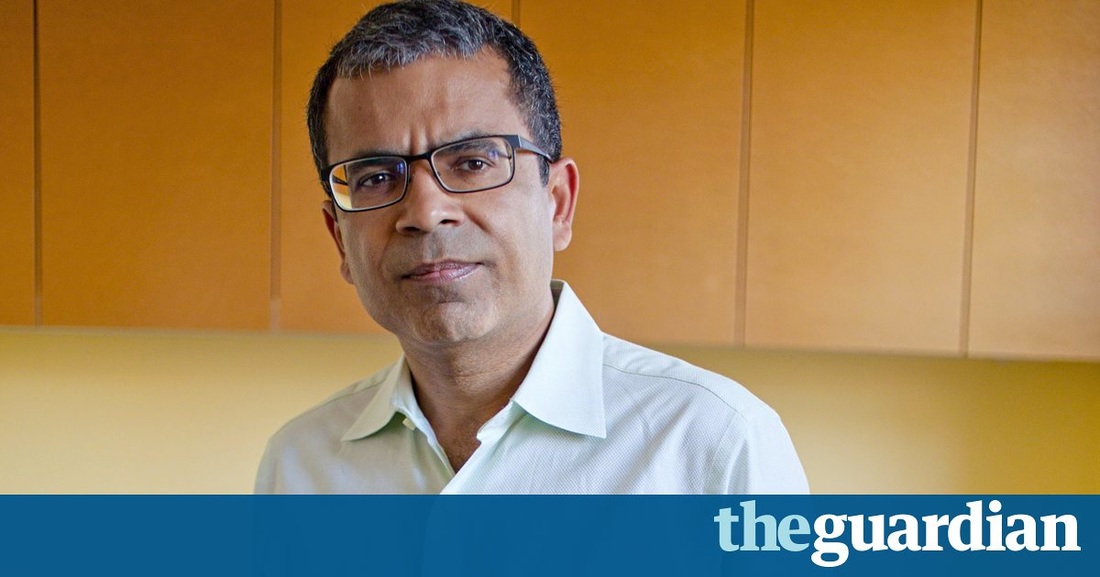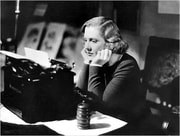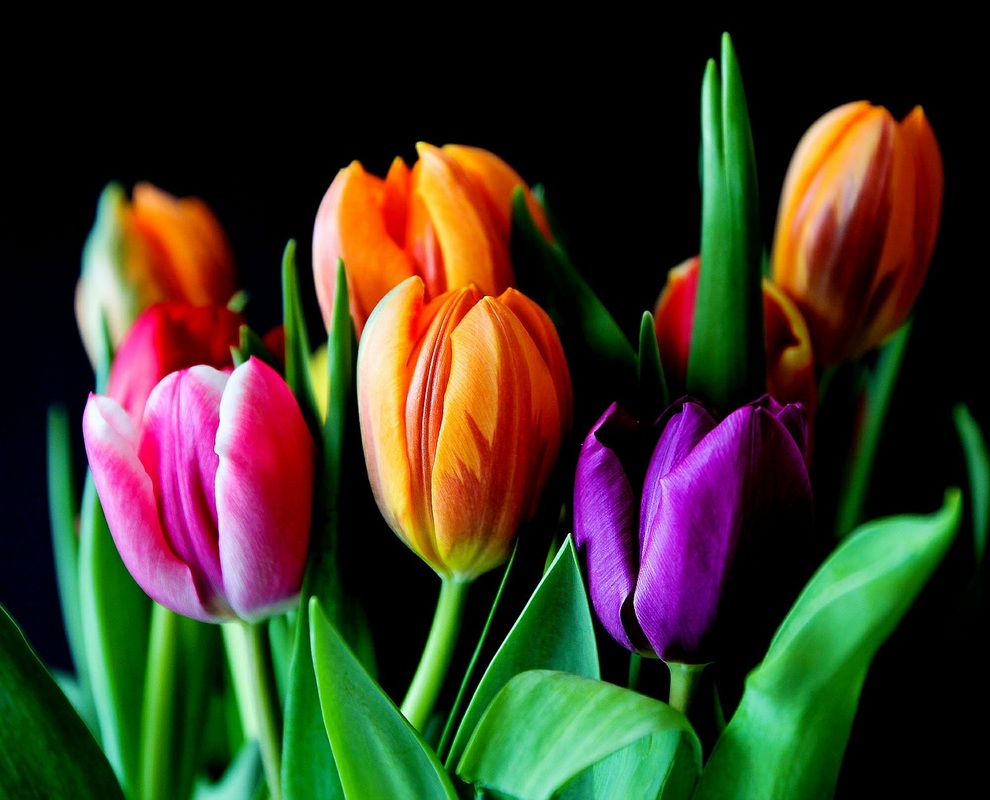|
I returned from a fabulous business trip to the US - what a wealth of insights, ideas, joys. How much we learn from each other, how far love, pure love, travels, how joyful service can be. I am grateful beyond words.
On my way back home I took with me Akhil Sharma's book "Family Life", a book on my mind and desk for six months. What a book! Funny and sad, wise and daring --- Akhil Sharma opens his heart and life to the reader, and anyone who can take an extraordinary share of tragedy and join an author as he works himself through the trauma and forward, is in for gift. I am reposting my original blogpost in which I wrote about the plan to read the book, and an extraordinary moving article from the same author, which had invited me to buy the book in the first place. You probably make the same experience: Some articles you read, stay with you. They have something that resonates with you - and they feed you and help you to grow. I have a collection of those articles, and the one, I am about to share with you, is one of them. The article "The trick of Life" by Akhil Sharma was suggested to us by Christian Science Monitor journalist Josh Kenworthy, and Sharma's text is part of our inner landscape ever since. The author shares something from his own experience and allows his insight to multiply and grow in our lives, too. The trick of life is more than a personal suggestion to his readers - the trick of life is a law in the human experience. And this law is Love. I read the headline to be "The trick of Life", although I am not sure whether he would agree. The article is about healing, redemption, about being true to a standard even if no one looks. This is called integrity - and Love is feeding it. I plan to read "Family Life" by Akhil Sharma over Christmas, his novel that he mentions in his text. When our daughter Anna-Zoë reread this text to the family a few days ago we all had again - as always - tears in our eyes. Reconsidering Sharma's thoughts I went back to Mary Baker Eddy's wonderful insight into the nature of prayer - a definition that many people would subscribe to, without knowing that loving and including all mankind in one love is prayer. A universal definition from a fresh perspective. No formula, only practice. Sharma is living it. Mary Baker Eddy writes in her beautiful book "No and Yes": "True prayer is not asking God for love; it is learning to love, and to include all mankind in one affection. Prayer is the utilization of the love wherewith He loves us. Prayer begets an awakened desire to be and do good." (p. 39) Here is the article, originally published in the New York Times in April 2014. The Trick of Life by Akhil Sharma SEVEN years into writing a novel, I started to lose my mind. My thirty-seventh birthday had just come and gone, the end of 2008 was approaching, and I was constantly aware of how little I had managed to accomplish. I would sit at my desk at 2 in the morning, unable to sleep, and drink pot after pot of tea and try to write. The panic attacks came then. I would be staring at the screen, examining a paragraph that I had already rewritten 170 times. Suddenly the screen would start to ripple, as if I were peering through water, and I would feel a pain like a punch in the chest. Months passed this way. My chest felt constantly bruised. One December morning, the crisis finally came. I had lain down on my living room sofa and found I could not get up. The idea of another year ending with the book not done overwhelmed me. A day went by and then two. My wife would stand beside me with her face full of fear. Finally desperate, she phoned a good friend of mine. He drove in from out of town, three hours away, and took me for a ride in his car. I was like a sobbing infant on the ride, but my friend was like a father who drives till his child falls asleep, soothed. When I returned to my apartment, I lay down once more on the couch. Again I felt the weight of my stalled novel. But something had changed. My friend’s kindness kept drawing my attention, the way a piece of glass at the bottom of a stream can keep blinking in sunlight and pull your eye. Each time I thought of him, I was soothed. A day or two after his visit, I got up from the sofa and walked down to the Hudson River, which I live not far from. I sat on a bench by the river and rested. I stared across it to the tall apartment buildings in New Jersey. Thinking of how people were living out their lives in those buildings comforted me somehow. I looked at the gray rushing water and its movement, the fact that it was coming from someplace and going someplace else also consoled me. It was then that I realized that I needed somehow to always be outside myself. My mind had become uninhabitable. When I was 10 and he was 14, my older brother, Anup, dived into a swimming pool, struck his head on its bottom and remained underwater for three minutes. When he was pulled out, he could no longer walk or talk, could no longer feed himself, could no longer even roll over in his sleep. Only a few months before, he was heading to the Bronx High School of Science. My parents are deeply pious Hindus. We had been in America for two years when the accident occurred, in 1981. And of course when tragedy occurs, even nonimmigrants and nonpious people find themselves turning to their most atavistic selves. My parents took Anup out of the hospital and brought him to our house. For the next 28 years, until he died, they tried to fix him through faith healing. Strange men — not priests or gurus, but engineers, accountants, candy shop owners — would come to the house and perform bizarre rituals, claiming that God had visited them in a dream and told them of a magical cure that would fix Anup. Having grown up like this, among so many crackpot rituals, I find nothing alien in exploring oddball ideas. So, sitting on the bench by the river that day, I remembered having read in Reader’s Digest — a periodical my family has undue reverence for — that when you are feeling bad, one way to make yourself feel better is to pray for others. I BEGAN to pray for the people who were passing by. I prayed for the nanny pushing a stroller. I prayed for the young woman jogging by in spandex. I prayed for the little boy pedaling his bicycle. I prayed that each of them got the same things that I wanted for myself: that they have good health, peace of mind, financial security. By focusing on others and their needs, my own problems seemed less unique and, somehow, less pressing. After this, when I would sit at my desk, trying to write, and despair welled up, I knew what to do. I prayed. Not for myself, or for the ability to write, but for others, whether dead or alive, known to me or not: William Faulkner as much as the crazy old lady in the grocery store. During my breakdown, many things, tiny things I had not even registered before, had begun to torment me with guilt. I used to steal Splenda from Starbucks. I would go into a Starbucks whenever I needed the sweetener and would take a fistful of packets, even when I didn’t buy a coffee. This had never struck me as especially wrong. Now, whenever I did this, my chest would tighten as if I was about to have a panic attack. I was also not an especially diligent recycler. But now, if I mixed plastic with metals, I had nightmares so severe that I would sweat all night. Waking from these, I found my fingertips so wrinkled that it was as if I had taken a bath, or swum in a pool. The answer to these problems turned out to be very simple, so simple I had missed it all this time. I stopped wishing away the guilt and started acting in ways I didn’t need to feel guilty about, even a little. No more stealing Splenda. No more mixing recyclables. All this praying and punctilious honesty might seem absurd, but it did let me finish my novel. The style of it is very different from my first. The nouns in my sentences used to fall in just a few places. Now they seem to bop around, nudging themselves into places I would never have thought to place them. Before, each paragraph had pushed the reader directly into the next. Now there is space between my paragraphs, and I have trust in my reader’s patience and generosity to stay with me, without shepherding him. Just as my parents were always looking for ways, however ludicrous, to wake my brother, I find that I am constantly on the lookout for ways to keep my mind quiet, so that I might live and work in peace. Recently, I read an interview of an actor who said that when he needs to change his behavior toward someone, he merely thinks, “I love you, I love you,” as he is talking to the person. I called my parents a few weeks ago on the second anniversary of my brother’s death. My father began telling me that he felt abandoned by my brother, that my brother’s dying feels like him leaving us. As he spoke, I started thinking: I love you. I love you. My usual response at this point would have been to tell my father that he needed to focus on the future, that what was past was past. Instead I told my father that he was wonderful, that he should think of how brave he had been to take care of his poor sick son for all those years, that his devotion had been heroic. However odd my reasons may seem, I am glad that I said this. |
Who is writing?
In my work as Christian Science practitioner and writer I draw on listening to God and listening to people. Categories
All
My Archive
October 2023
|





